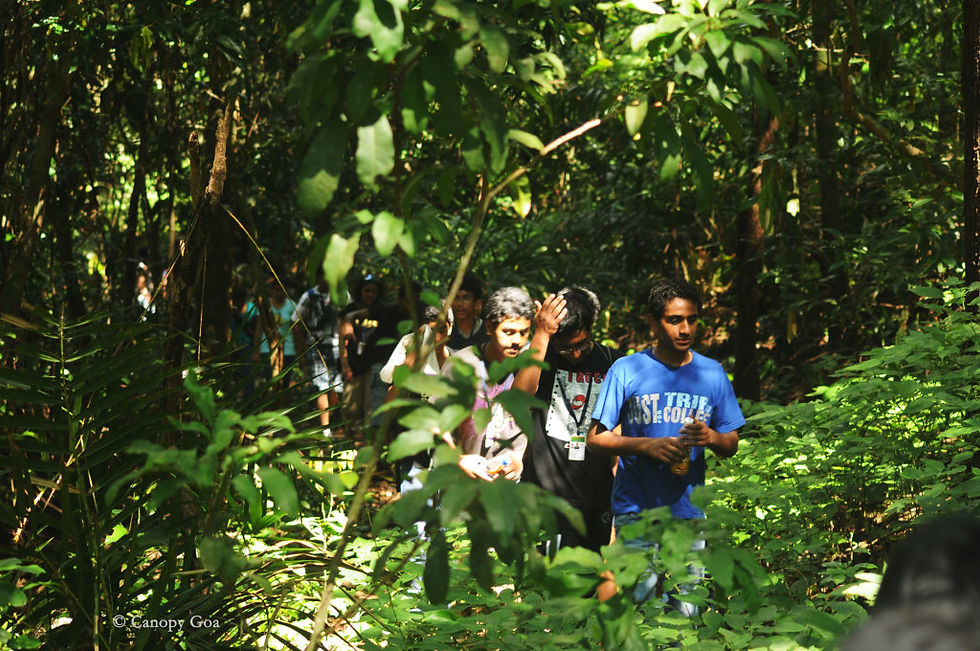Birding in Goa: Nov. 2016
- MrugayaXpeditions

- Sep 18, 2018
- 4 min read
Updated: Sep 21, 2018
NOT JUST A PLACE FOR SUN, SEA AND SAND.....BUT ALSO BIRDS!!

This was the first of our birding tours for the 2016-17 season and what a fruitful tour it was. The tour was scheduled from 3-6 Nov 2016. The first day started off with the boat ride in river Zuari and the Cumbharjua Canal. The Cumbharjua Canal is a man-made canal that joins two of the major rivers of Goa- river Mandovi and river Zuari. This is a mangrove lined Canal where one gets to see some species very specific to the mangroves. We first moved towards the mouth of the river where we got good views of White-bellied Sea Eagle, Great Crested Terns, lesser crested tern, a peregrine Falcon that has been seen at the same location for years now and one of the target birds of the trip; and Osprey, a specialised fish eater.
We then moved towards the mangrove lined Canal and were rewarded with good views of Collared Kingfisher, Striated Heron, Black-crowned Night Heron, Grey Heron, Lesser Adjutant, Common Redshanks, Common Greenshanks and some really close shots of the Common Kingfisher. The black-capped Kingfisher however did not oblige for a photograph. We only got to see it from a distance for a short while. One can also see the Indian Marsh Crocodile during this trip and we got to see quite a few.
Post the Zuari boat ride we proceeded towards Netravali Wildlife Sanctuary where we were staying for the next 3 days. We were staying in Aangan-village stay in Verle village in Netravali Sanctuary, a one of its kind tourism co-operative project in Goa. In the evening we just walked around the village to get a feel of the area and to get used to the forest. To our delight we got some good species like the Great Hornbill which we saw for almost half an hour, heart spotted woodpecker, Crimson backed Sunbird, Greater Flameback, Golden-fronted Leafbird, Little Spiderhunter, Nilgiri Flowerpecker and over a 100 chestnut headed bee-eaters coming to roost in the village.
The next day we got breakfast packed and went inside Netravali Wildlife Sanctuary. This place is above 500m from sea level so we got to see some mid elevation species which are usually not seen in the otherwise famous birding areas. Due to its remoteness this part of Goa has been less explored. So we were in for some surprises. Our local guide Kalpesh directed us to a fruiting Ficus tree full of Grey-fronted Green Pigeons, Malabar Barbets, White-cheeked Barbets, Yellow-browed Bulbuls, A couple of Mountain imperial Pigeons, a single Hill Myna which we saw on our return. On another fruiting tree close by there were Flame-throated Bulbuls – the state bird of Goa. In the bushes around the tree were Indian Blue Robins, Indian Blackbird and some reed warblers.
Further down the path we came across White-bellied Blue Flycatchers, Malabar Trogon (female), Malabar Woodshrike, Heart spotted Woodpecker, Paradise Flycatcher, Orange minivet, Greater racket tailed drongo, Lesser Yellownape (one of the lesser seen woodpeckers in Goa), speckled piculet and so on. Post lunch we once again to try and get better shots of the barbets and Pigeons. We got to see the Blue-capped Rock thrush, Indian Scimitar Babbler and Asian Fairy Bluebird. We came back late evening to try for the Sri Lanka Frogmouth and we were successful in our search for this elusive bird.
On day 3 we started early to Cotigao Wildlife Sanctuary with some specific target birds to see there. On the way we got to see Pied Bushchats, Malabar Larks, Jacobin Cuckoo, Vernal hanging Parrots, Mountain Imperial Pigeon, Malabar Pied Hornbill, Grey-headed Bulbul, Tree Pipits. Just as we reached we heard the call of the White-bellied Woodpecker but the pair just flew over us and we were not lucky enough to get any shots. As we went further into the sanctuary we started seeing Asian Fairy Bluebirds, Yellow-browed Bulbuls, Brown-capped Pygmy Woodpecker, Dark-fronted Babblers, White-bellied Blue Flycatcher and a Blue-throated Blue Flycatcher, one of the rarer passage migrants to Goa. As we were about to start back we once again heard the calls of White-bellied Woodpecker. This time it gave us good views and some decent shots and at the same time there was a pair of Malabar Trogons around.
We were supposed to do a repeat of the Zuari boat ride on the last Day but due to some reason it got cancelled and we decided to bird around for a while and then proceed back. That gave us some really unexpected sightings, by far the biggest sighting of the trip. We came back to the fruiting tree and all of a sudden we heard a very harsh call not regularly heard so we waited there for a while. We could see some movement in the undergrowth. After scanning with our binocs we confirmed that there was a big flock of Wynaad Laughingthrushes there. This is one very sought after bird probably throughout the entire Western Ghats and it was sighted in Goa after a long time. It was a flock of almost 20 birds. That made the day. We then also got to see the Rufous Babblers.
So in all was one very successful trip.





Comments